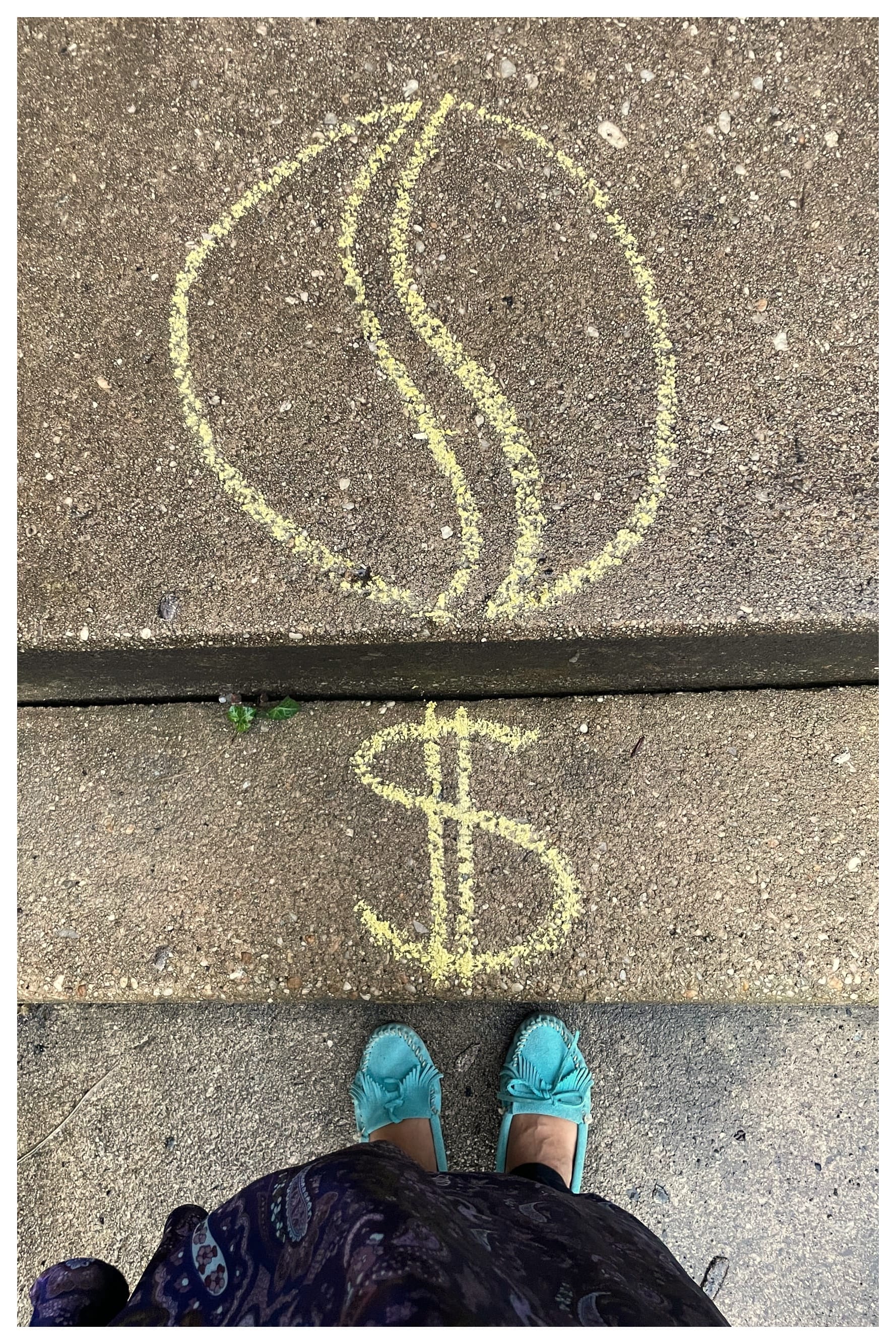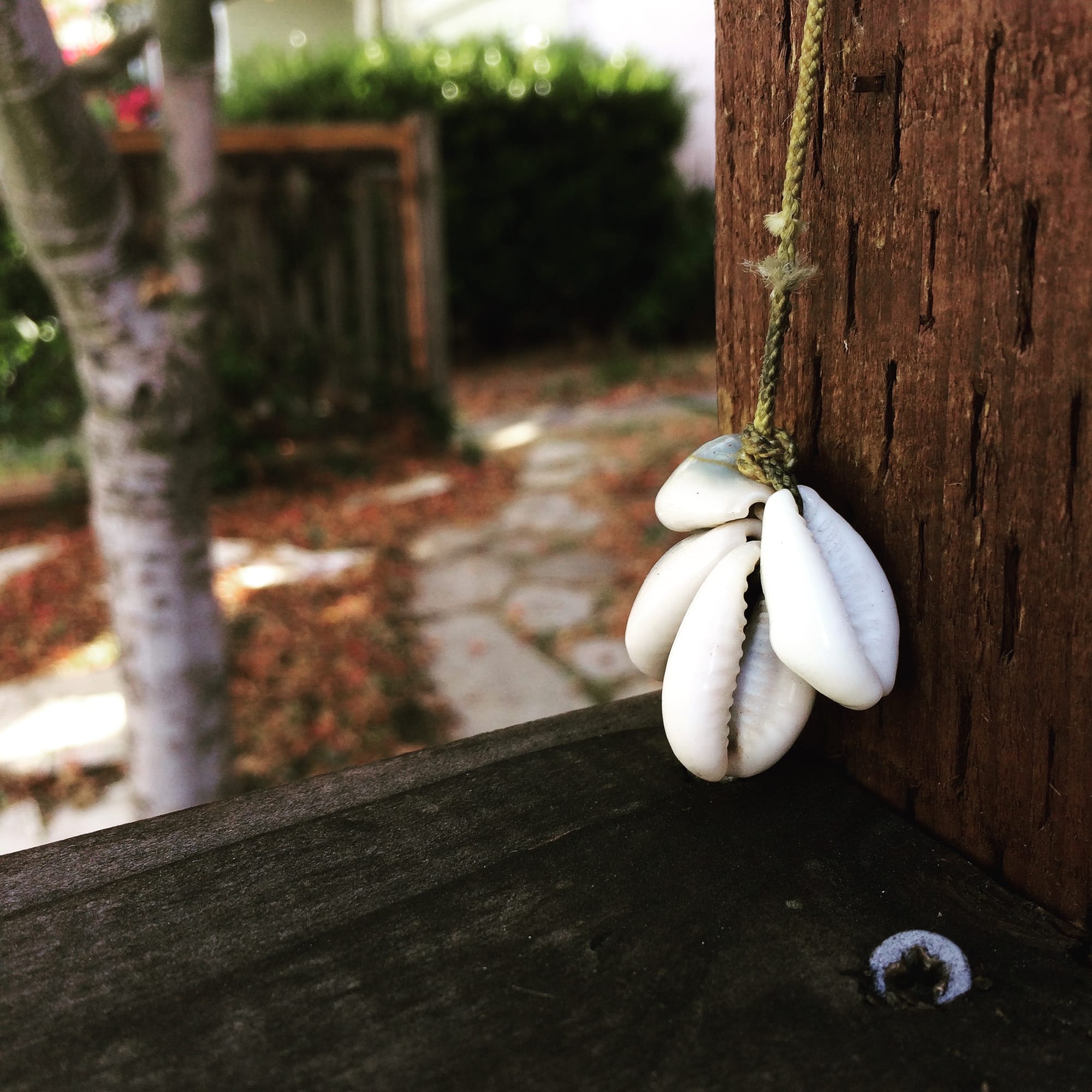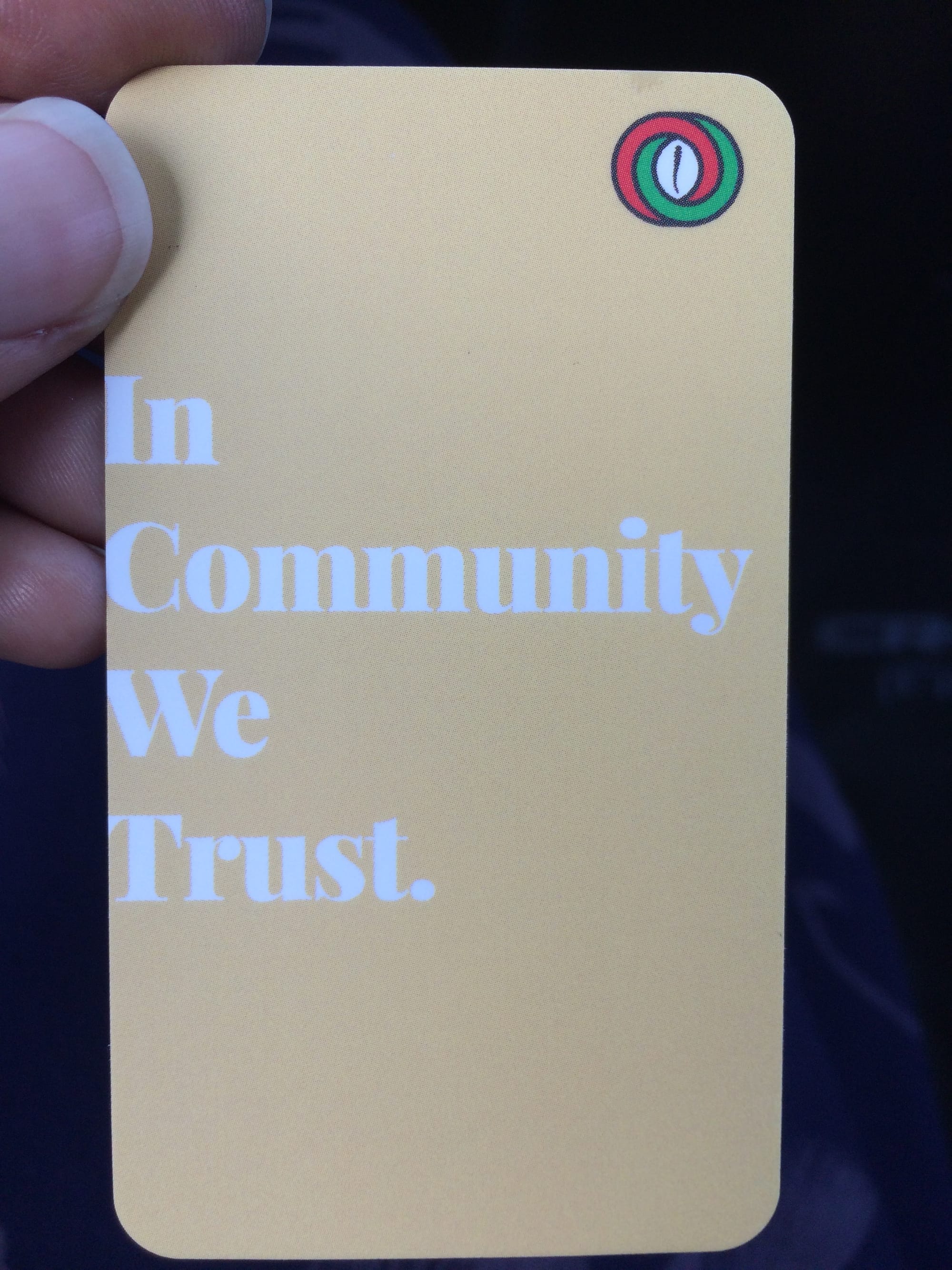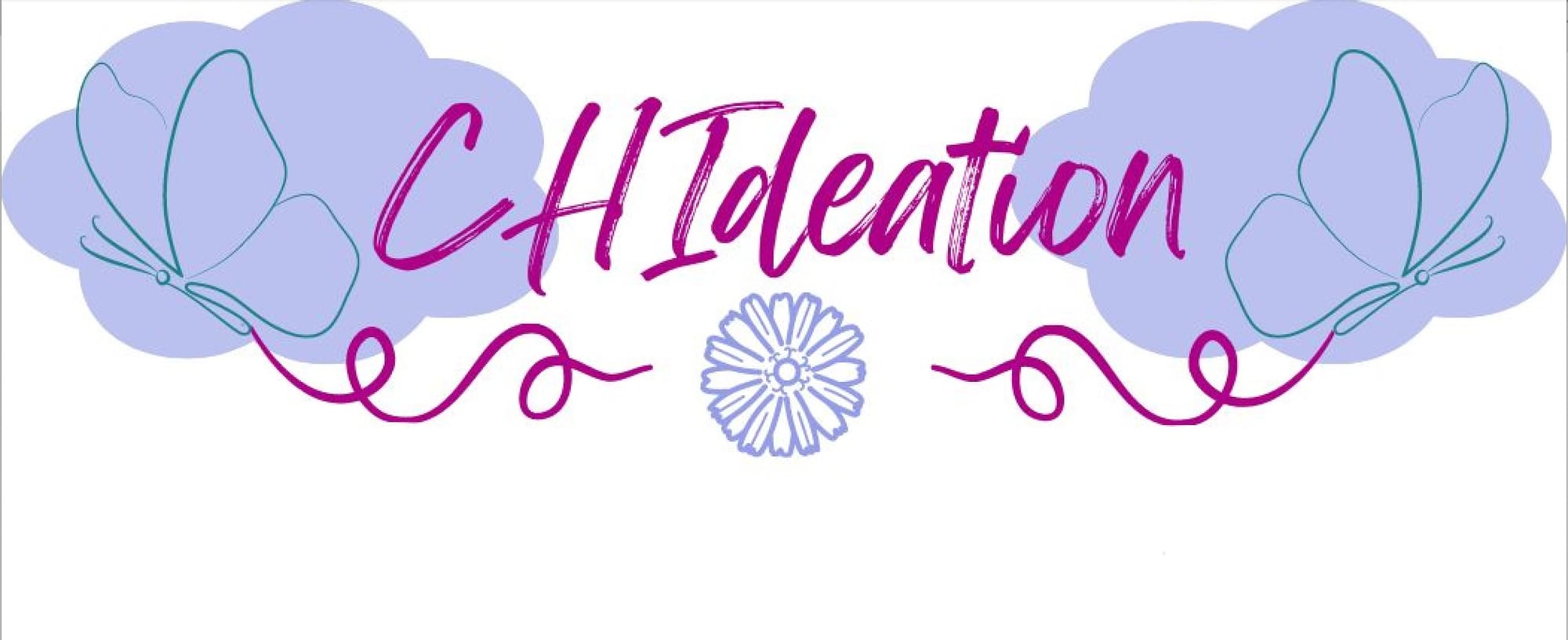Can A POC Solidarity Economy Leader Steal from a Black Single Mother Founder + Futurist? You Betcha! On the Predatory Practices of Julia Ho

The Personal is Political.
An Open Letter to Julia Ho, Founder of Solidarity Economy St. Louis.
Originally written on October 9, 2022 during the aftermath of a break up that had debilitating effects on my capacity as I finished my last semester of graduate school while mothering two school age children. I have returned to edit and publish this essay now after a two year period of healing.
I am writing this letter today while I sit in my kitchen in Baltimore. I chose to move here from St. Louis a little more than one year ago, a decision I made, in part, because I felt defeated about how my community currency work, visioning and labor, were stolen from me, renamed and rebranded and used to form and promote the organization of Solidarity Economy St. Louis whose founder is, you, Julia.
Over the years, I’ve been thinking about how best to express this betrayal and maybe I will never be able to fully articulate the harm you have caused me, and by virtue, my children, and a good number of friends and comrades who you have been dishonest with, denied funding to, or whose work and labor you have also stolen, rebranded, or attempted to rebrand as your own. Three or more of us have had communication with you about your predatory practices. This communication has taken the form of private conversations, with me in 2018, when we met one afternoon at Teatopia on Cherokee Street, mediation sessions, via email, and public call-outs on the Solidarity Economy St. Louis listserv in February 2021.
There have been weightless apologies and no changed behavior. Given that we have been able to connect the dots, particularly of your intellectual and organizing theft of three single Black mothers (Dail Chambers, Tosha Phonix and myself) it is time to address this theft more widely and publicly. “There’s nothing more powerful than an idea whose time has come.” Yes?
Taking a deep breath. Pausing. This betrayal runs deep and literally requires me to pause while I process and write.
At first I thought that this piece would be a bulleted list of your harmful and dishonest actions, but there are more details that need to be shared, particularly from our relationship, Julia.
I remember meeting you at Sweet Art Cafe to talk to you more about timebanking. You sought me out to learn more about it and I believe this was in 2014. I chose Sweet Art as the place to meet because it is where I held my first Cowry Collective interest meeting in 2009, where the owners, Reine and C’Babi Bayoc were present along with about seven other Black St. Louisans who were my friends. Cowry Collective began as an economic empowerment model of self-determination for Black people. Sweet Art is the Cheers for Black St. Louisans, and it’s always been important for me to put money back into the hands of those that I respect, particularly other Black parents. It's inspiring to see what Reine Keis has achieved by launching her dream business.
Shortly after, you joined the Cowry Collective leadership team and we worked closely together for years. I taught you about time banking and mutual aid practices, how to lead publicly, and how to lead workshops - one in particular was presented at the North American Social Solidarity Forum in Detroit in April 2016. This was a re-worked presentation I developed first with my sister friend and comrade, YaVette Holts, founder of Cowrie Village and BAOBOB, Bay Area Organization of Black Owned Businesses, in 2015 when we co-presented at BUGS, Black Farmers and Urban Gardeners Conference in Oakland in October 2015.

The overlap of our work between Cowry Collective and Solidarity Economy became murky. For instance, I conceived of the Humans of Solidarity Economy concept and resulting zine, hosted the gathering at my home with core Cowry Collective members where the content was created, and then the zine became largely credited to Solidarity Economy St. Louis because of its title. This blurred line is something you and I talked about but never fully remedied which now complicates this reckoning. I distinctly remember my board chair, another brilliant Black single mother, warning me about delineating the leadership between Cowry Collective and Solidarity Economy when I became aware that you had written a grant to the City of St. Louis that included a timebanking model to address juvenile delinquency with restorative justice without first consulting me or asking me to be included and compensated. It seems you were more concerned with working with the M.A.N. Mutual Aid Network, who first used a timebanking + restorative justice model in Madison, WI, than me.
After I piloted the Time For Food program in 2016-2017, in cooperation with my close friend and comrade Mary Densmore who, at the time, was one of four members of New Roots Urban Farm, to match urban gardeners and farmers with support from Cowry Collective members which culminated in the Time For Food Farmers Market in August 2017, you offered an identical program under a different name. In fact, most people thought I was associated with that program. There are several more examples of this copycat theft including setting up a collective art space a few blocks away from Yeyo Arts’ Jefferson Avenue location with Kaveh Razani. Yeyo Arts being an organization dedicated to the creative empowerment of women and families that has been operated cooperatively for over a decade, and is the first of its kind in the St. Louis region. You literally replicated the work of Dail Chambers, an original St. Louis sustainability and solidarity steward, and set up a POC women's collective across the street, soliciting her organizational members and clientele. You became a real estate agent, and then purchased a home diagonal from Dail that operated for two years as the only active drug house on her neighborhood street, where the tenant killed a community cat with his hands, beat, choked and killed his own dog, and had continuous psychotic outbursts, drastically effecting a predominantly Black community and their children and grandchildren.
You founded Solidarity Economy St. Louis using the contacts from M.O.R.E. (Missourians Organizing for Reform and Empowerment). I remember you telling the co-executive directors at that time, who were Tia Byrd and Derek Laney, that you didn’t like the way that the organizing work was happening and that if things didn’t shift, you would be leaving the organization and starting something new. And that’s exactly what you did. You were a recent Washington University graduate with nothing to lose, correct? And we are both Washington University in St. Louis alum, so yes, I do understand the power and privilege that the education and degree from that institution grant us. How we use that power and privilege, particularly as people of color, is the ultimate test and inquiry that I live into. I am proud of the way that I have used my Wash U education to selflessly better St. Louis. While I may not currently have the money to show for the thousands of hours of work that I gave to teaching interdependence to hundreds of St. Louisans and those as far reaching as the Bay Area, Detroit, Madison, WI, Chicago, Buffalo, NY, and Highlander Center in Tennessee, my integrity and inner peace are intact. Both of these being invaluable.
You have been taking small and large pieces of fellow Black St. Louisan’s work and re-branding them as your own for at least six years now. Particularly hurtful to me is that I am a Black single mother who lives a full life albeit with limited resources of time, energy and money. You, however, are younger than me, and did not have children** and have been able to be that nonstop activist who could go after funding opportunity after funding opportunity without relent. Given my own challenges, it naturally followed that I was not able to keep up with the pace and intensity of my community work with Cowry Collective and I became very fatigued and had to stop the work a couple times throughout my ten year community currency career. I remember taking a break after I had my son in 2012 and again in 2017. During my downtime, read: burnout, in 2017 you grew Solidarity Economy St. Louis using the skills, tools, and know-how that I and many others had taught you. You used venues run by people that I had spent months and years building relationship with. You worked closely with my friends and comrades in St. Louis and beyond as a board member of New Economy Coalition. Many of the members of your group that are Black mothers have been corralled from other community efforts in divisive ways such as gossiping, shaming, and coercion, with the promises of financial gain through collaboration.
**At this time of editing and publishing, I am aware that you are now a mother. And while I have plenty of thoughts about your own journey to motherhood, I consider mothering to be both an everyday lived experience and sacred, and with the sacredness in mind, I will not offer my thoughts of how you came to be a mother.
It’s hard to understand why you’ve been able to get as far as you have when much of St. Louis can see, in part, what you have been doing for nearly a decade. I think the answer lies in the fact that you hold and have held the purse. That you have supportive parents and a family foundation to back you up is definitely a blessing and a factor. Solidarity Economy St. Louis has been a major funder to grassroots projects and organizations, most of them, Black-led, receiving grants and resources and redistributing them. So to critique you personally and publicly has felt like a no-no. However, this being a truth telling time in my life where it is tantamount that I rid myself of users and dishonest people, it is important to share this information with the public and the global solidarity economy network. Now, in 2024, as I plan my return to community currency and solidarity economy work as an expert consultant with over a decade of experience, it is of utmost importance that all are aware that I am the founder of the second time bank in St. Louis, and the first Black single mother timebank founder without institutional backing or funding, likely in the whole of the midwest.

So what are my asks, Julia? I learned about list of demands while watching you organize around climate justice, megaphone in hand, as a Wash U student and graduate. I find this ironic, as expansion, pavement, and built structures have increasingly been centered more than the historic trees from the oak walk on the Danforth campus for decades. More importantly, I was first introduced to the concept of list of demands, from the song by Saul Williams, on his self titled 2004 album.
- Publicly address the harm that you have caused me and community leaders.
- Publicly credit me as one of your teachers in this work.
- Cite Black Women and Black people that have presently taught you what you know about solidarity economy as you continue this work. Including those who have inspired you in the past, that you have not organized into your group. The citations should be included on the Solidarity Economy St. Louis website, social media and articles you are featured in.
- Collectively, I am asking that the Solidarity Economy St. Louis organization and its members that you are associated with, think through and address their association to you. I ask the same of those using the Solidarity Economy Network listserv. How can community members trust the work of the solidarity economy and restorative justice organizations and project that you are associated with and who are associated with you?
Lastly, I think another aspect of this experience that is hard to wrap my mind around is that you are a person of color harming other people of color, most notably Black women single mothers. Often, as people of color, we can unite around the experience that white people are takers, can be crafty, and that systems run by white people are extractive, can be predatory, and that we generally need to be wary about how we engage with them. That you are a Taiwanese American person makes this even more intricate, shall I say? And yet here we are and I am writing to face this nuance, and the reckoning we are now sitting at the feet of.
My final question for you Julia: Where is the true solidarity? We know you’ve mastered the economy part.
Chinyere Esther Oteh, founder of Cowry Collective, est. 2009.

